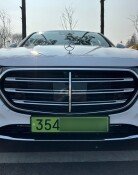How new leaders in SK, US could affect ties with N.Korea
How new leaders in SK, US could affect ties with N.Korea
Posted October. 26, 2012 01:43,
The neck-and-neck race for the U.S. presidency has caused the security equation of the Korean Peninsula to turn more complex. Huge changes in the situation are expected depending on who is elected South Korea`s next president, how he or she will approach ties with Washington, and how North Korea will respond to the changes.
○ Combination of new presidents in South Korea, the U.S.
Mitt Romney, the presidential candidate of the Republic Party, champions strong foreign and security policy. He also takes a hard-line stance on North Korea, calling food assistance bribes and pledging to eliminate Pyongyang`s nuclear weapons by penalizing private businesses and banks that deal with the Stalinist country.
While U.S. President Barack Obama, the Democratic candidate, urges "strategic patience" and denies compensation for provocations, he will likely utilize a policy of "carrot and stick" on North Korea with greater confidence if reelected. Obama, who prefers a balanced foreign policy, is expected to focus on seeking solutions rather than creating conflict.
"Though U.S. policy on North Korea has strong continuity, Romney will likely use stronger tones and rhetoric if elected. This could cause a problem in Washington`s relationship with Pyongyang," said Ma Sang-yoon, an international relations professor at Catholic University of Korea.
South Korea`s presidential runners propose a more flexible North Korea policy than that of the incumbent Lee Myung-bak administration. Park Geun-hye, the standard-bearer of the ruling Saenuri Party, is expected to get tougher on North Korea than rivals Moon Jae-in of the main opposition Democratic United Party and independent Ahn Cheol-soo.
The combination between the new South Korean and U.S. administrations will likely be crucial. The results of the upcoming presidential elections in the two countries could produce four combinations: (1) U.S. Republican Party-South Korean ruling party; (2) Republican Party-South Korean opposition; (3) U.S. Democratic Party-South Korean ruling party; and (4) U.S. Democratic Party-South Korean opposition.
Judging from the political slants of parties in the two countries, scenarios 1 and 4 are similar combinations between conservative or liberal parties. In scenarios 2 and 3, the matches are mixed.
Experts say the combination between the Republican Party and South Korea`s opposition has the biggest potential for friction, while the Democratic Party-South Korean ruling party combination will not likely lead to tension as has been seen in the case of the Obama-Lee Myung-bak relationship.
○ North Korea`s choice in 2013
Since North Korean leader Kim Jong Un inherited power from his late father Kim Jong Il, the younger Kim has sought to improve Pyongyang`s relations with Washington while trying to avoid a direct clash with Seoul despite refusal to deal with the South. For Kim Jong Un, the most urgent challenge is to stabilize his grip on power by inducing loyalty from his people.
So the U.S. Democratic Party-South Korean opposition combination is the most desirable in this respect. If the new administration in Seoul seeks to quickly mend fences with Pyongyang, Obama will also likely attempt to hold talks with Kim Jong Un. For North Korea, the U.S. Republican Party-South Korean ruling party combination is the worst-case scenario. In this case, North Korea will likely attempt to use its nuclear and missile tests and military actions as leverage," said Yang Moo-jin, a professor at the University of North Korean Studies in Seoul.
If administrations with opposing political stances take power in South Korea and the U.S., North Korea could attempt to selectively improve relations with either of them. "If the U.S. Democratic Party and a South Korean opposition candidate win, the North will likely deal directly with Washington," said professor Kim Yong-hyeon of Dongguk University. "If the Republicans and South Korea`s ruling party win, Pyongyang could depend first on Seoul."
will71@donga.com
Headline News
- Med professors announce intention to leave hospitals starting Thursday
- Bridge honoring Sgt. Moon Jae-sik unveiled in Pennsylvania
- Chief of Staff Chung tells presidential secretaries to stay away from politics
- US FTC bans noncompete agreements
- N. Korea launches cyberattacks on S. Korea's defense companies







